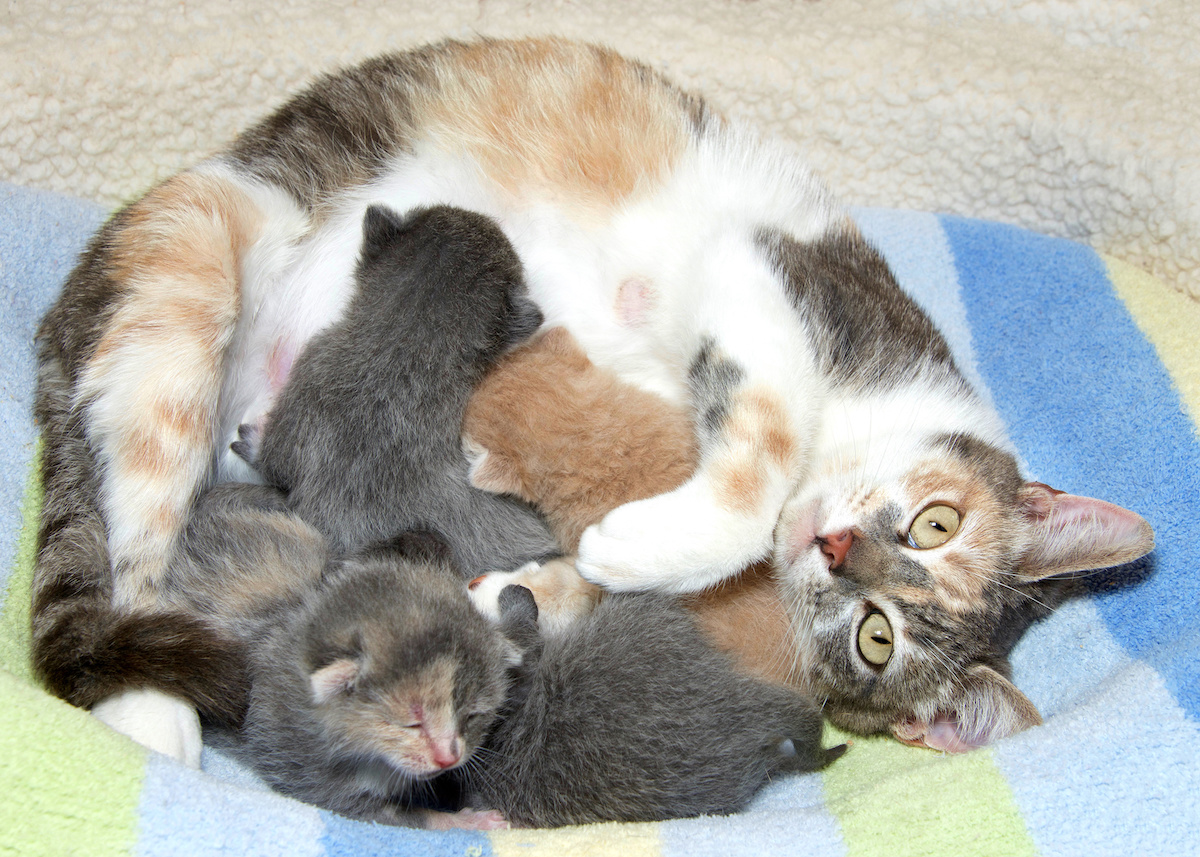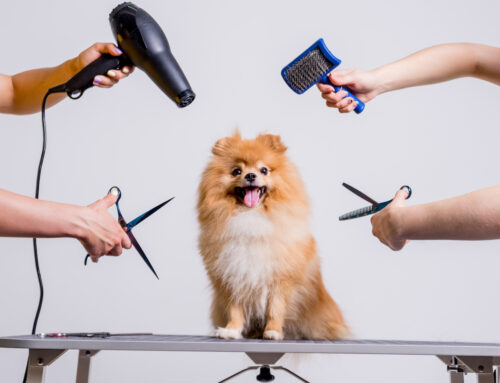If you have a cat or dog, spaying and neutering might come to the forefront of your mind. Spaying or neutering your pet is a responsible procedure for nearly any pet owner. However, this is also a major surgery for your furry friend.
Many pet owners have questions and concerns when it comes to spay and neutering. To put your mind at ease, we’ll discuss some FAQs about spaying and neutering and other important information that you need to know.
What Is Spaying Or Neutering?
Spaying (females) and neutering (males) is a surgical procedure that removes the reproductive organs of the animal. The spay procedure removes the ovaries and uterus from the female pet, and the neuter procedure removes the testicles from the male pet.
The surgery is performed under general anesthesia and takes about 30 minutes for males, and about 45 minutes for females. The surgery is usually done using the same incisions made for a spay, so there is minimal scarring.
Why Should I Spay Or Neuter My Pet?
Both procedures are done under general anesthesia so your pet will be asleep and won’t feel any pain.
The primary reason to spay or neuter your pet is to prevent unintended pregnancies. Unfortunately, the situation of unwanted cats and dogs in the United States is dire. About 6.5 million animals end up in shelters each year, and of these, about 1.5 million are euthanized. The majority of these were unwanted for whatever reason, and could have been prevented.
A well-managed spay/neuter program has the potential for a significant impact on reducing the number of unwanted animals entering shelters.
Additional reasons to consider spaying and neutering include:
- Help reduce roaming while in search of a mate
- Help control the pet population
- Prevent certain reproductive cancers in both male and female pets
- Prevent hormone-related behavioral problems
Shelters are overflowing with abandoned pets, and millions of puppies and kittens are euthanized each year because there aren’t enough homes for them. Spaying and neutering is a direct way that you can help put this cycle to an end.
Is Spaying and Neutering Safe?
Since this is a major surgery that involves the removal of reproductive organs, many pet owners worry if it’s a safe procedure.
The short answer is yes, it’s very safe. But it’s also very important to find a good veterinarian to perform the surgery. If complications occur, they are typically minor and treatable with antibiotics.
From a medical point of view, the biggest risk of this surgery is the anesthesia. If your veterinarian does not have experience in performing this procedure, you should seek another vet.
What Happens During Surgery?
While you can’t attend the surgery alongside your pet for sanitary purposes, we’re happy to walk you through what happens during this procedure.
Your pet will be given pre-operative medication that will relax and sedate him or her. The procedure will be performed under mild general anesthesia. Your veterinarian will make an incision in the abdomen and both testicles/ovaries will be removed with their attached blood vessels. When this is complete, the veterinarian will stitch up your pet safely so the opening can heal.
After surgery, your pet rests in an area of the facility where he or she can rest.
Will my Pet Stay Overnight?
The good news is that spays and neuters are outpatient surgery. This means you will be able to pick up your pet by the end of the same day and take them home.
What are Signs of Complications?
As with any surgery for pets or people, there is no procedure that is 100% risk-free. If your pet is having complications from their surgery, you’ll want to consider the following signs:
Infection
Infection is a major concern for your cat or dog after the procedure. Twice a day, you should be checking your female pup for infection. An infection can cause the incision to feel red and hot or even ooze blood or puss, depending on the severity.
An infection could occur if your dog excessively cleans or chews at the incision site. They need to be kept away from other pets with access to fresh water. Keep the incision site dry and clean and keep an eye on it to make sure it heals correctly. If your dog itches the incision too much, he or she may need to wear a medical cone on their neck.
After surgery, your veterinarian will provide you with instructions on how to take care of the incision site. Usually, after spay surgery, internal stitches are used to close the opening. If your pet bites at the incision, the sutures could open.
Slow-Healing Wounds
Bruising, swelling, and irritation may not be cause for panic immediately after surgery. However, they are all the signs of an open wound that should heal quickly.
In some cases, a male dog may still seem to have testicles after castration. It is, however, due to swelling and should disappear within a few days. If the swelling persists or there is a purulent discharge, then the vet should be contacted as soon as possible.
Hernia
This type of injury is easily recognizable in dogs. A hernia will appear as a bulge in the stomach region, typically near where the incision site was. This type of hernia is not always painful. When it is, it may be due to organs slipping through the abdominal wall, such as intestines or bladders.

How Much Does it Cost to Spay and Neuter?
This is a very common question about spaying and neutering. The cost for this procedure can vary widely from clinic to clinic. One common method of determining the cost of a spay or neuter is by the weight of the dog.
Keep in mind that spays typically tend to cost more than neuters as well. The reason for this is that the ovaries and uterus are more difficult to access than the testicles.
- A first-year spay typically costs between $80 – $300 depending on your location, the clinic, the size of the dog and the spay method used.
- A first-year neuter typically costs between $50 – $200 depending on your location, the clinic, the size of the dog and the neuter method used.
You should be wary of any clinic that quotes a high price and offers little to no details on the services they perform.
Even with the low cost spay/neuter clinics, you can expect to pay more than $200.00, this could easily be a couple hundred dollars more depending on the clinic and the dog’s size.
Keep in mind that you may be required to update your cat or dog’s vaccines before moving forward with the surgery, which is an additional cost.
When Should You Spay or Neuter Puppies?
Puppies should be spayed or neutered at six months of age, or as soon as they are old enough and healthy enough to undergo surgery.
There is no advantage to delaying the surgery. In fact, there are risks of delaying surgery.
This is because female dogs can have a false pregnancy for up to three months after their first heat (or three months after first breeding).
However, generally, puppies should be spayed or neutered before six months of age unless there’s a medical issue that prevents it. As young as 5 months of age for a male dog, your dog’s reproductive organs are almost done developing. It’s rare for a puppy to be physically capable of reproducing before that point, but it does happen. (Be aware, though, that females can go into their first heat as early as 6 months old.)
When Should You Spay or Neuter Kittens?
You have a new kitten in your family. When should you consider the spay or neuter procedure?
The answer depends on the age of your kitten. Kittens are most commonly spayed or neutered between the age of 6 to 9 months. If a kitten is spayed or neutered too young, there is a greater risk that their physical development may be stunted. However, the earlier the animal is sterilized, the less likely it will be to contract diseases such as FIV or FeLV, or become pregnant.
If you have not already done so, you should plan to take your kitten to the veterinarian for a wellness exam and spay or neuter procedure as soon as possible.
There is no one right time. If you are going to have your kitten altered in the very near future, you do not have to have the procedure done immediately. Your veterinarian will advise you on what is most appropriate for your situation.
Have More Questions?
Contact us. If you don’t see answers to the questions that you have listed on this blog, please reach out to us. We are always available to talk to you about spaying and neutering. As one of the kindest acts that you can do for your pet during the course of its life, please contact us today for questions or to schedule a wellness visit.






